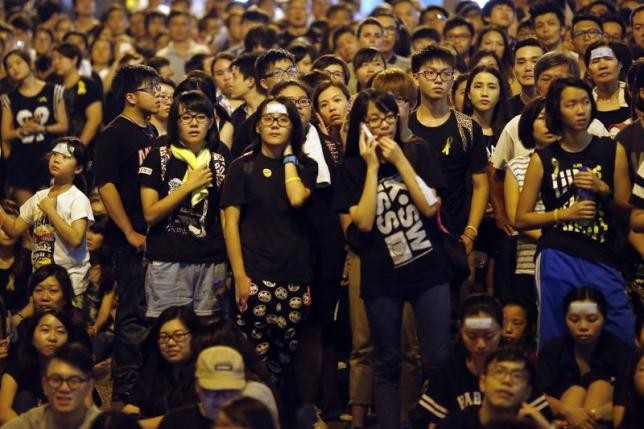A system that will give early warning of large crowds massing up in public spaces is being developed by Baidu’s Big Data Lab (BDL) by collecting people's queries to its map app, the Global Times reported.
As advocated by the central government, the use of big data will improve public safety, experts said, although others show concern about the security of information.
The BDL published a report on March 22 that analyzed the 2014 Shanghai stampede which resulted in the death of 36 people and injured 49 others, during the New Year's Eve celebrations in the city's riverside Bund area.
Although it is difficult to predict the appearance of dangerous crowds since the movement of persons is "random and complex," the BDL report said that they may be able to warn of a crowd gathering up to three hours ahead.
According to the report, it is possible to tell the direction where large numbers of people are heading by collecting and analyzing the query data since people often use the Baidu map app to search for directions.
BDL's early warning system will analyze the data and measure the potential crowd risks, the report said.
"Having more than 70 percent of the market share overall in China, Baidu map has an innate advantage in tackling this problem," the report reads.
As reported by China National Radio on Saturday, March 26, Baidu said that the crowd-analysis technology is still being studied and they may share it with local governments and stadium operators in the future.
"If we can protect the privacy of users, big data is definitely helpful for public safety and anti-terrorism work," Fang Xingdong, founder of blogchina.com and a cybersecurity expert, told the Global Times.
Fang added that terrorists can be monitored by governments by looking at certain keywords using big data.
"The traditional methods of protecting public safety, which relied on manpower, were not comprehensive, and were unpredictable," Qin An, a cybersecurity expert at the Chinese Institute for Innovation and Development, told the Global Times.
"Nowadays, everyone owns a mobile phone, therefore in the time of big data, given the proper approaches and the good combination of data, it will likely be successful in providing an early warning," Fang added.
On Aug. 31, 2015, the State Council issued guidelines to boost the development of big data, based on the action framework ratified by Premier Li Keqiang that aims to establish a new model for social governance in the next five to 10 years through accurate management and multi-dimensional cooperation.
Since 2014, Guizhou Province has been developing its big data industry, with province-level big data agglomeration system involving two million servers.
However, there are problems yet to be solved, despite the significant role of big data in protecting public safety.
"Cybersecurity risks arising from the use of big data have appeared," said Wang Biao, a security expert from wooyun.org, a public third-party platform.
Wang said that information collected from users by government has become easy target for hackers to steal, while government systems usually have no powerful defensive measures to secure information.
"When we found loopholes, we reported them to the National Computer Network Emergency Response Technology Team/Coordination Center of China immediately, and the bugs are usually fixed after a short time," Wang said, "but we can't guarantee they [the websites] will not make the same mistake again."
"As big data is so new, it is still not clear which is the public area and which is the private one," Qin said.
"Users are sensitive to big data, as it is related to their privacy," Fang said, "An internationally recognized and clear rule to balance privacy and safety should be introduced, which can also avoid the abuse of big data."



























